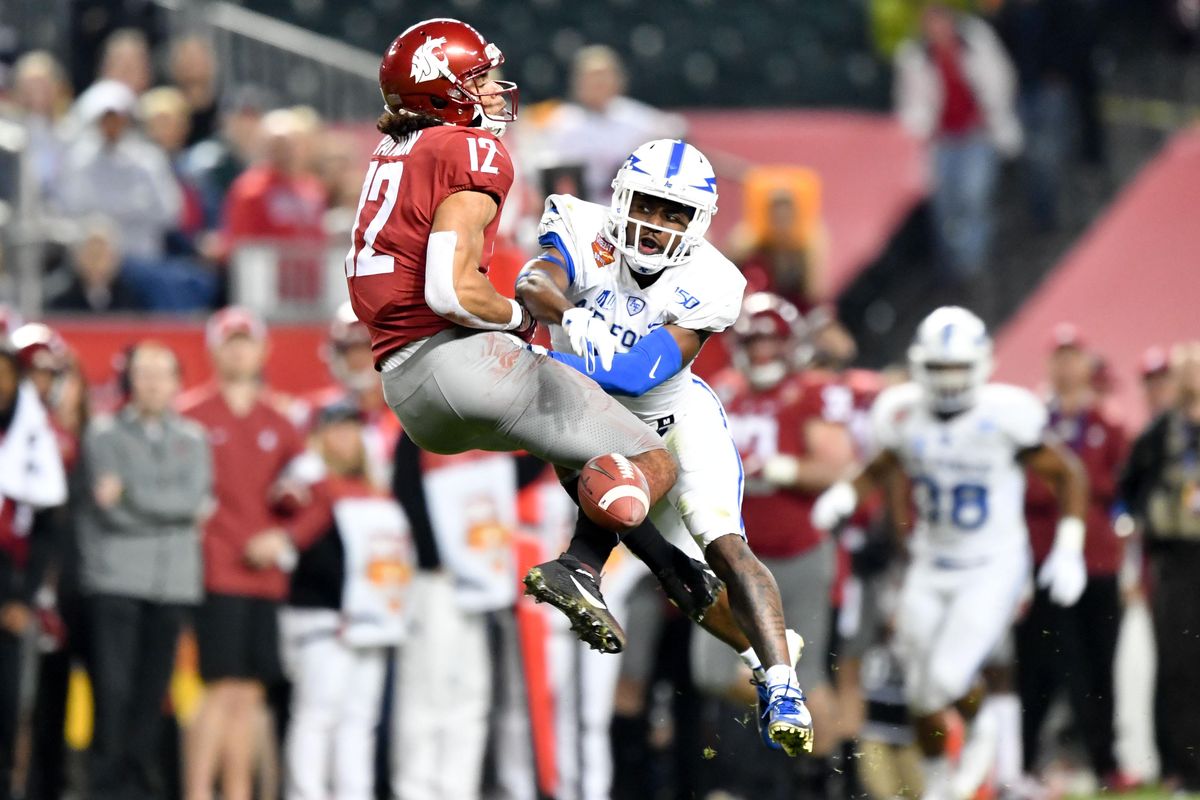Experts, fans split on bowl eligibility for 6-6 teams like Washington State

PHOENIX – If it were up to Kirk Herbstreit, the Washington State football program would have spent the holiday season on the couch with family and friends, rather than battling it out with Air Force in the Cheez-It Bowl.
The longtime ESPN personality and host of “College GameDay” voiced his displeasure with the current bowl system Friday morning in Phoenix, lamenting the fact that a saturated market has forced the inclusion of mediocre programs and lessened the significance of postseason appearances.
“I don’t think you should go to a bowl game (with six wins),” Herbstreit said. “I think a bowl game should be a celebration of a great year. There might be some isolated cases where teams start 1-5 or 1-6 and then they win four or five in a row at the end of the year.”
It is a common sentiment shared among fans of college football, as even the most casual observer is sure to notice the abundance of gridiron action stemming from a 40-game postseason slate.
The Cougars were one of 13 teams with a .500 record to squeak into postseason contention, but only after besting Oregon State by a single point in late November as part of a disappointing 3-6 Pac-12 outing.
The most common criticisms of the current format include bowl apathy and analogizing postseason appearances to “participation” trophies.
One person who doesn’t share those sentiments? Former NFL punter and official Cheez-It spokesman Pat McAfee.
“Are there too many bowl games? That’s not for me to say, because there are a lot of teams and players to celebrate,” McAfee said prior to Friday night’s matchup. “I’ve always enjoyed the bowl season, not only because it’s entertaining to watch on TV, but for the teams themselves it’s a week to get away from the distractions and everything else to focus on each other and football.”

While a postseason appearance certainly helps an institution in marketing and recruitment efforts, a bowl trip also provides a chance for students to celebrate their school, even after a mediocre regular-season showing. Senior Eric Katigbak is one of 189 marching band members who made the trip to Chase Field to represent Washington State.
“I like the current bowl system because it gives players motivation to win games late in the year, especially like our game against Oregon State when we were both desperately trying to win to be eligible,” Katigbak said. “I don’t think it has to do with how many bowl games there are. Any opportunity to support a team and get their name out there is great for a school.”
Supporters have also argued that the inclusion of .500 teams provides a chance to not only showcase smaller-market programs on a national stage, but also cause potentially significant upsets. Former Air Force tight end Dave Mott recalled how his squad took down Ohio State and Herbstreit in a 23-11 surprise victory in the 1990 Liberty Bowl.
“When we played them, they had just lost to Michigan in the last game of the year,” Mott said. “I think it ultimately has to do with the mindset of a team. If they’ve put in the work to be 6-6, then they’re going to compete and play it out.”
Despite the prevalent controversy, there doesn’t appear to be an immediate answer to the current issue of bowl eligibility. But Mott did suggest a change in strategy based on the prominence of each respective conference.
“I think if you’re from the Pac-12 or a Power Five team, you should get in (at 6-6),” Mott said. “But if you have that record in the Mountain West, maybe you shouldn’t.”
Others, like McAfee, have embraced the bowl season for what it is – a chaotic jumble of unusual matchups, unique venues and peculiar sponsors.
“Getting a chance to go to a bowl game and travel with your teammates to another city, getting a chance to build camaraderie and put a cap on the entire season is a beautiful thing,” he said. “I think it’s good for every team, no matter what your record is at the end of the year … and that’s why I enjoy the hell out of it.”